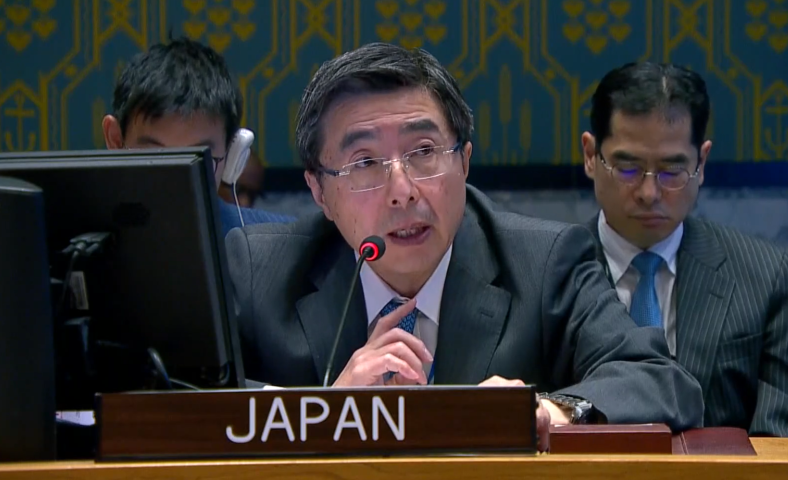スーダン情勢に関する安保理会合における石兼大使ステートメント
令和5年5月22日

Thank you, Madam President. I also thank SRSG Perthes, AU Commissioner Adeoye, and IGAD Executive Secretary Workneh for their briefings as well as for their tireless work on Sudan. Japan supports all efforts by the Trilateral Mechanism so as to help Sudanese people in need.
At the time of the SRSG’s previous briefing on 20 March, we were encouraged by the reporting about Sudan’s transition process, following the signing of the Framework Agreement last December and the broad and inclusive workshops on outstanding issues facilitated by the Trilateral Mechanism of the African Union, IGAD, and the United Nations earlier this year.
However on 15 April, everything changed, and Japan is alarmed by how rapidly the situation has deteriorated.
Bearing this in mind, I will mention three points.
First, Japan reiterates its call on both parties, namely the Sudanese Armed Forces and the Rapid Support Forces, to immediately stop fighting and return to a peaceful political process. We cannot accept any use of force that undermines the Sudanese-led and Sudanese-owned process toward a transition to civilian rule as outlined in the Constitutional Declaration of 2019. In this regard, Japan commends regional and international initiatives to seek a lasting ceasefire and a return to political dialogue.
Second, Japan is seriously concerned about the humanitarian situation, not only in Sudan but in neighboring countries. More than one million people, including women and children, are expected to flee the country by October to seek security and fulfill their basic needs, according to UNHCR. We welcome the Jeddah Declaration of Commitment to Protect the Civilians of Sudan and the Agreement on a Short-Term Ceasefire and Humanitarian Arrangements and urge the parties to keep these agreements. Japan has decided to implement assistance to Chad, Egypt and South Sudan through international organizations in response to the influx of refugees.
Third, Japan stresses the importance of maintaining UNITAMS under these difficult circumstances. The Council must speak in a united voice and support the Mission as it seeks to revive the political process while also maintaining the other three pillars of its mandate.
Going forward, we are ready to actively contribute to discussions on how best to adapt the Mission’s strategic objectives and operations to the rapidly changing circumstances while ensuring that Council members have optimal insights into the political dynamics that affect its work. We also call on all the parties in Sudan to ensure that UNITAMS can carry out its activities unhindered.
Allow me to conclude my statement by reiterating our firm support to the Mission and our solidarity with the people of Sudan as they face this unprecedented challenge to the democratic transition in which they have invested so much hope and sacrifice.
I thank you.
